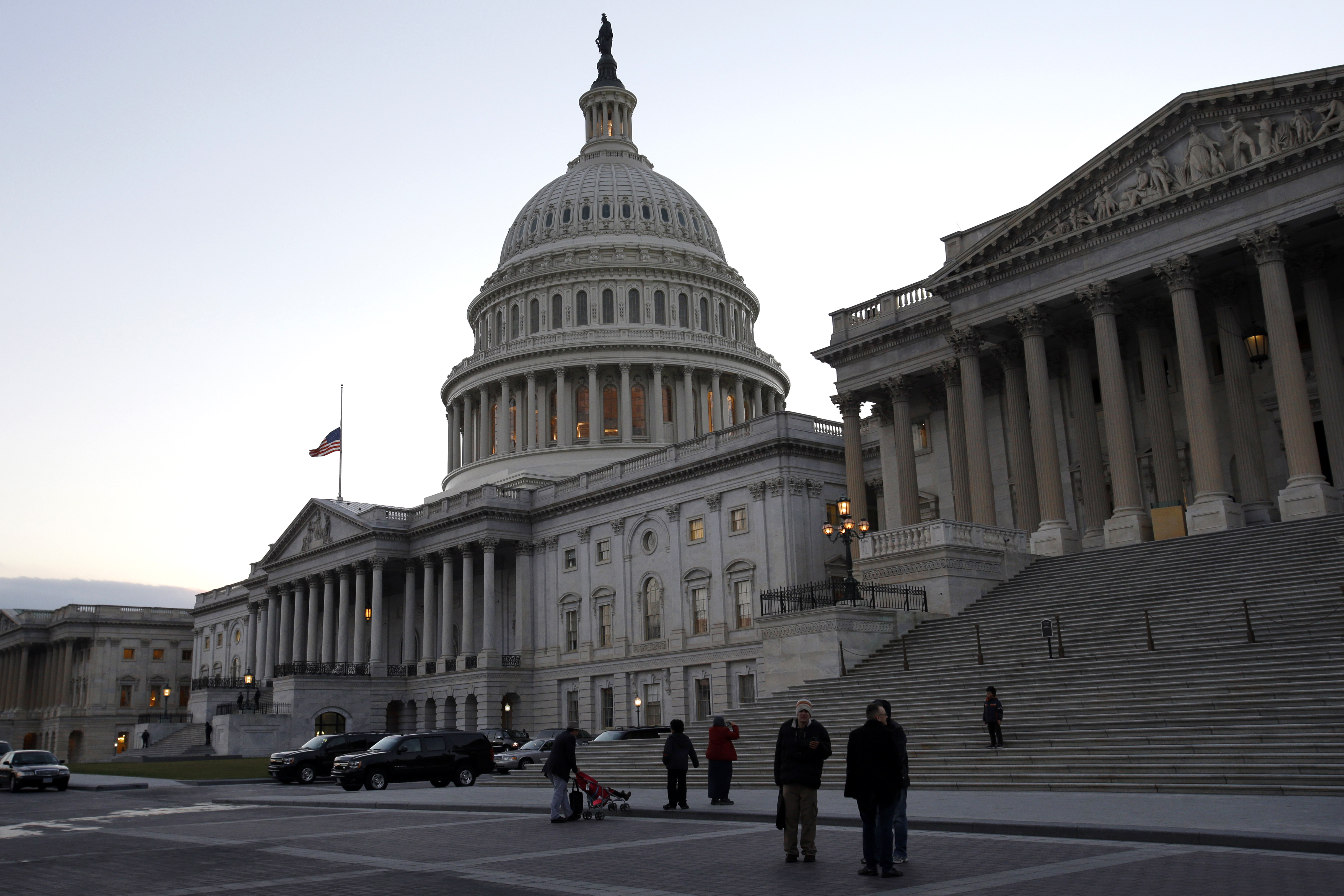TENNESSEE, GEORGIA SCHOOL IMPACTSIn the Volunteer and Peach States, the deepest cuts will be felt at the schools that need them most: those that receive Title I federal funding for teachers, equipment and initiatives.That money is designated for the nation's high-poverty schools. Both states could face 5 percent reductions, officials said.Hamilton County Schools could lose vocational and special education dollars on top of Title I funding, said Christie Jordan, director of accounting and budgeting."We have not put any initiative, any program, any person on the chopping block," Jordan said. "I don't want anybody to get the idea that we're putting anything on the chopping block at this time. It's premature."There's a silver lining, though: The fiscal year runs through June 30. So no cuts are expected anytime soon."The one benefit out of all this is we have time," Georgia Department of Education spokesman Matt Cardoza said.- By Kevin Hardy and Chris Carroll
WASHINGTON - "It's premature for me to speculate." "There's not a lot I can tell you." "No communication from the federal government." "We've not yet received guidance." "It's very frustrating."
Welcome to five Sequestration Eve responses from state agencies in Tennessee, Georgia and Alabama. Barring a truly 11th-hour deal, they began cutting at midnight, doing their part to accomplish an $85 billion nationwide slash.
Thing is, nobody knows where to start.
"We are not in a position to speculate on the matter until a final decision has been reached at the federal level," Tennessee Department of Environment and Conservation spokeswoman Meg Lockhart said Thursday.
While education, public health and labor officials across the tri-state area are preparing for the worst -- layoffs, furloughs and the like -- when, where and how don't seem as obvious.
When members of Congress passed the Budget Control Act of 2011, they never thought sequestration would become Washington's most hated buzzword. The across-the-board cuts would come to pass only if President Barack Obama, the House and the Senate spent 18 months failing to trim $1 trillion from the deficit.
That happened.
The $85 billion? Zapped. Gradually? Probably.
UNKNOWNS
Georgia Department of Education spokesman Matt Cardoza summed it up Thursday when asked how the state interpreted an eerie White House figure about the Peach State: That about 54,000 "fewer students would be served" from Varnell to Valdosta.
"They'll still get served," Cardoza said, "but maybe not as well."
When the new fiscal year starts July 1, 390 teachers, aides and support staff could be laid off statewide, Cardoza said, adding that parents should prepare for larger class sizes. Tennessee is looking at similar cuts, officials said.
Things aren't as clear at Georgia's and Tennessee's health departments. Despite some very specific figures from the White House -- funding losses resulting in 6,300 fewer HIV tests in Tennessee and 4,180 fewer child vaccinations in Georgia -- state agencies declined to confirm anything.
"It is very difficult to speak about sequestration and its effects on public health when we don't know that it will happen," Georgia Department of Public Health spokeswoman Nancy Nydam said in an email Thursday.
Tennessee's response was similar.
"The Tennessee Department of Health has received no communication from any federal entity providing information or direction about which federally funded programs might be affected if sequestration occurs," spokeswoman Shelley Walker said. "Should sequestration go into effect, we will provide impact details as they become known."
Walker added that health officials aren't doing interviews until they know more.
At the Alabama Department of Labor, spokeswoman Tara Hutchison said the White House report "is not in any way specific."
The White House says Alabama should prepare to lose $472,000 in funding for job search assistance, referral and placement, "meaning around 16,600 fewer people will get the help and skills they need to find employment."
"I am not sure where the 16,600 number is coming from -- again, we have received no specific information," she said. "Unfortunately, there's not a lot I can tell you."
Georgia Labor Commissioner Mark Butler agreed, calling the situation "very frustrating."
THE POLITICAL SIDE
Tennessee and Georgia lawmakers found agreement Thursday: Something's coming.
"There's a lot of concern on the part of the American people," said U.S. Rep. John Lewis, D-Ga. "A lot of fear."
Sen. Lamar Alexander, R-Tenn., blamed the impasse on Obama's leadership skills.
"If the president spent one-tenth of the time developing a plan that he has spent cynically campaigning around the country engaging in scare tactics," Alexander said, "the problem would be solved."
Obama hit Republicans right back, but state officials painted with a broader brush, dinging everyone involved.
The blame game's old news, they said: no matter whose idea it was, Congress passed the Budget Control Act and Obama signed it into law.
Tennessee Gov. Bill Haslam told a Nashville business group earlier this week that while he believes federal cuts are necessary, he hates the idea of across-the-board reductions.
They make no allowance for "whether it is strategic and needed or just whether that's a nice-to but not a have-to" expenditure, the Republican said.
Environmental clean up in Oak Ridge National Laboratory will be cut, according to Haslam. He thinks the federal government will end up spending more money to restart the program than if it were left alone.
"It's a really, really dumb way to do government, and we're getting ready to see it happen, I'm afraid," Haslam said.
Staff writer Andy Sher contributed to this report.

